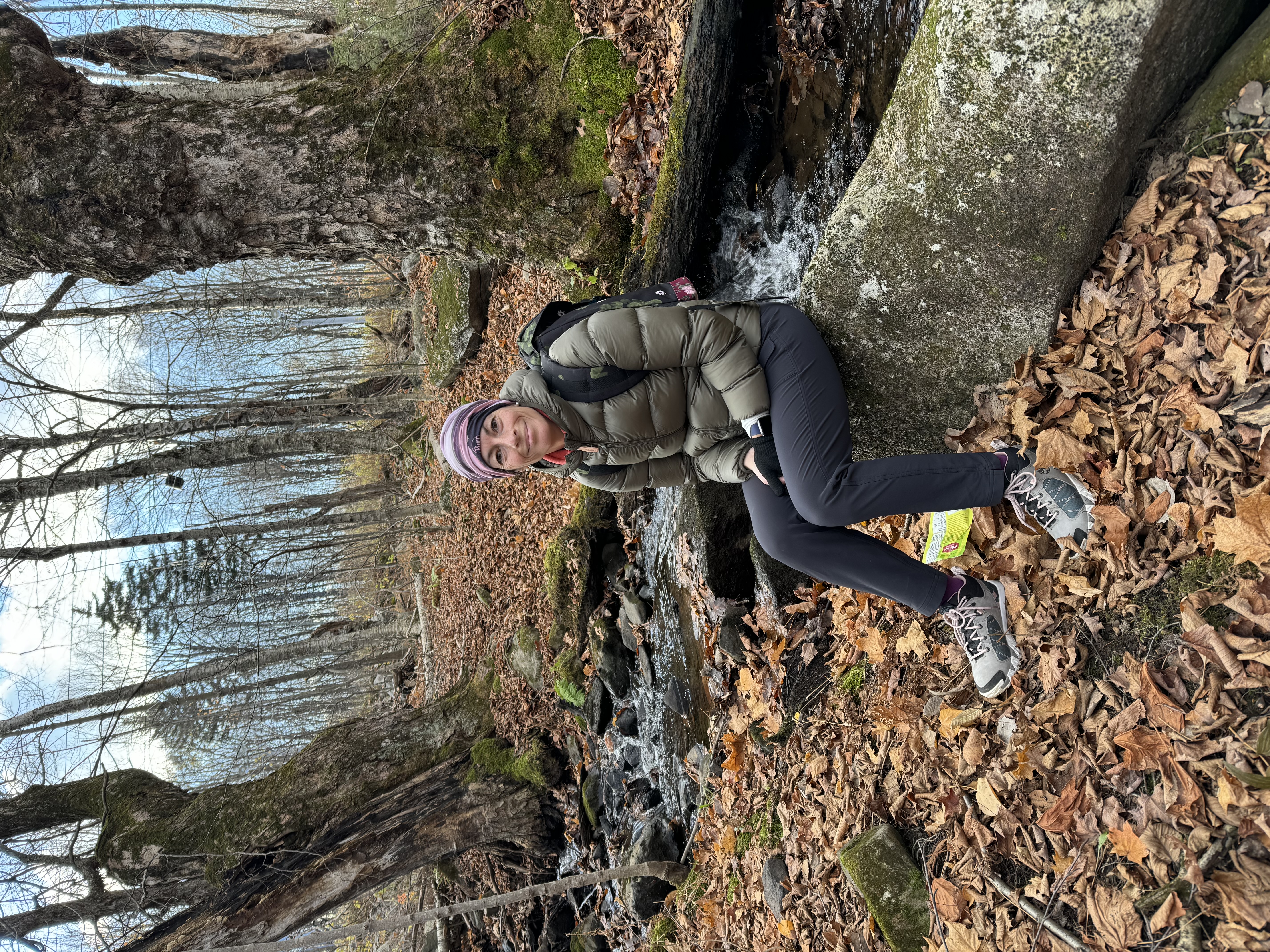Annie Poulin
Annie Poulin
Ph.D., Water sciences, 2008
Professor at École de technologie supérieure

“That’s exactly what I needed — people who believed in me, who saw bigger than me and in my abilities. Every time I spoke to my mentors, they challenged me more and more, emphasizing my potential to become a researcher. So, I took the opportunity!”
A lifelong science enthusiast, Annie Poulin initially chose to study health sciences because of her interest in medicine. Her path began in nutrition, but during a course on the human body and digestion, she realized that this field didn’t fascinate her that much. She then decided to turn to engineering, where she could combine her analytical thinking with her other passion, the environment.
During her studies in geological engineering, focusing on earth sciences and groundwater resources, Annie crossed paths with Professor Jean-Pierre Villeneuve. He offered her the opportunity to immerse herself in the world of research at INRS via a summer internship. Enthusiastic about the idea, Annie began an internship at INRS-EAU, one of the predecessors of the Centre Eau Terre Environnement that same year. The experience proved to be a real source of inspiration for her. She continued working alongside Alain Rousseau and Alain Mailhot, both research associates of Professor Villeneuve at the time. Annie recalls with pleasure this enriching period with Professor Villeneuve’s team, highlighting the group activities that enabled her to meet students at various stages of their studies. She smiles as she recalls how, as a trainee, she used to admire the people advancing to PhD level, thinking “Wow, they’re really brave, I’d never do that!” Yet, in the end, she did.
Towards the end of her bachelor’s degree, Annie is fully aware of her identity as an engineer, a realization shared by friends and family alike. Initially, her goal was to complete her engineering studies, gain experience in water science and start her career. The idea of pursuing higher education and engaging in research was not at all on her radar. However, tempted by a master’s degree at INRS, it became clear to Professor Villeneuve and her co-director, Professor Alain Mailhot, that she was the ideal candidate for a doctorate. Despite her initial refusal with a simple “No, thank you,” Annie eventually accepted, completing her PhD in water sciences six years later.
What really influenced her change of direction was the gradual discovery of her passion for research. She emphasizes the important role of professors as mentors, pointing to the encouragement of Professors Villeneuve and Mailhot who encouraged her to take this path. For her, having someone who believed in her abilities and pushed her to take on challenges was decisive. She adds: “That’s exactly what I needed — people who believed in me, who saw bigger than me and in my abilities. Every time I spoke to them, they challenged me more and more, emphasizing my potential to become a researcher. So, I took the opportunity!”
Following the completion of her doctoral studies, Annie mapped out her career path as a postdoctoral fellow at the École de technologie supérieure (ÉTS), before opting for a career as a professor-researcher. In her opinion, her training at INRS has played a decisive role in her career to date.
As a professor today, Annie emphasizes the importance of human qualities to excel in this role. “As a mentor to young researchers, although we have advanced experience, it’s essential to be receptive to students’ different stories and personalities. It’s essential to know how to adapt and guide them to excel. This is how I see and practice my role daily,” she emphasizes. She also shares this: “The greatest challenge lies in guiding a student to take full charge of his or her project. When he or she comes up with ideas or solutions to the obstacles encountered, I say to myself, OK, we’ve done it! It’s a deeply human experience. A happy, confident student is a successful student.”
For Annie, INRS will always be her alma mater, a place she considers unique. Today, she proudly expresses her continuing attachment to INRS. She concludes her testimonial by sharing this advice to students: “Take full advantage of your student days to have fun with your research. You have the chance to explore, so take this opportunity as an invitation to have fun first and foremost. At INRS, I fully embraced this notion, which is crucial to becoming a scientist. What I appreciate most about my career is its creative dimension. The whole process of exploring new ideas fascinates and excites me. Creativity and curiosity are incredibly stimulating elements in research. My personal aspiration is to continue having fun for the rest of my career. A teacher who enjoys herself encourages her students to do the same.”
[Interviewed in January 2024.]
